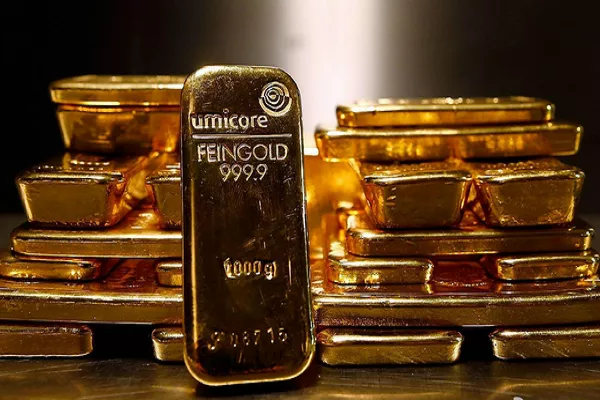Investing in gold has long been considered a safe haven for investors looking to diversify their portfolios and hedge against economic uncertainties. Central to understanding gold investment is the concept of spot price — the current market price at which gold can be bought or sold for immediate delivery. However, the relationship between the spot price and the actual price at which gold is bought and sold can be complex. In this article, we will delve into the intricacies of gold trading, explore the factors influencing its price, and provide insights into buying and selling gold in relation to the spot price.
Explanation of Spot Price
The spot price of gold refers to its current market value based on immediate delivery transactions. It is determined by various factors, including supply and demand dynamics, geopolitical tensions, interest rates, and currency movements. The spot price serves as a benchmark for trading in the gold market and is closely monitored by investors, traders, and central banks around the world.
Gold Trading Mechanics
Gold is traded on various platforms, including futures exchanges, over-the-counter markets, and online trading platforms. The most actively traded gold futures contracts are traded on exchanges such as the Chicago Mercantile Exchange (CME) and the London Bullion Market Association (LBMA). These exchanges provide liquidity and transparency to the gold market, allowing investors to buy and sell gold contracts with ease.
Factors Affecting Gold Prices
Several factors influence the price of gold, including:
Economic Indicators: Economic indicators such as inflation, interest rates, and GDP growth can impact the demand for gold as a hedge against currency depreciation and inflationary pressures.
Geopolitical Events: Geopolitical tensions, conflicts, and uncertainties can drive investors to seek refuge in safe-haven assets like gold, leading to increased demand and higher prices.
Central Bank Policies: Central bank policies, including monetary easing measures and changes in gold reserves, can affect the supply and demand dynamics of the gold market.
Currency Movements: Since gold is priced in US dollars, fluctuations in currency exchange rates can influence the price of gold for investors holding other currencies.
Investment Strategies
There are several strategies for investing in gold, each with its own risk-return profile:
Physical Gold: Investors can buy physical gold in the form of coins, bars, or jewelry. Physical gold provides a tangible asset that can be held as a store of value.
Gold ETFs: Gold exchange-traded funds (ETFs) offer investors exposure to the price of gold without the need to physically own the metal. These funds track the price of gold and can be bought and sold like stocks on major exchanges.
Gold Futures: Futures contracts allow investors to speculate on the future price of gold without owning the underlying asset. Futures trading requires a higher level of expertise and carries a higher degree of risk.
Market Trends
Recent trends in the gold market have been influenced by a combination of factors, including:
COVID-19 Pandemic: The onset of the COVID-19 pandemic led to a surge in demand for gold as investors sought safe-haven assets amid economic uncertainties.
Monetary Policies: Central banks around the world have implemented unprecedented monetary stimulus measures to support their economies, leading to concerns about inflation and currency debasement.
Geopolitical Tensions: Geopolitical tensions, particularly between the US and China, have fueled investor anxiety and increased demand for safe-haven assets like gold.
Historical Data
Historical spot price data can provide valuable insights into long-term trends and patterns in the gold market. Analyzing historical price movements can help investors identify potential buying and selling opportunities and make informed investment decisions.
Future Predictions
While predicting the future price of gold with certainty is challenging, analysts and experts use a variety of methodologies and indicators to forecast potential price trends. These predictions are based on factors such as macroeconomic conditions, geopolitical developments, and supply-demand dynamics.
See Also Buying Gold at Spot Price
FAQs
Does gold always sell for the spot price?
No, the actual price at which gold is bought and sold may vary from the spot price due to factors such as dealer markups, transaction costs, and market conditions.
How do I buy gold at the spot price?
Buying gold at the spot price typically requires purchasing large quantities directly from wholesalers or participating in futures or options contracts on exchanges.
Can I sell gold for the spot price?
Selling gold for the spot price is possible through certain channels, such as selling gold bullion or coins to reputable dealers or participating in futures or options contracts on exchanges.
Conclusion
Understanding the dynamics of gold trading and the factors influencing its price is essential for investors looking to profit from this precious metal. While the spot price serves as a benchmark for gold trading, the actual price at which gold is bought and sold may differ due to various factors. By staying informed about market trends, employing sound investment strategies, and leveraging historical data and expert predictions, investors can navigate the gold market effectively and capitalize on opportunities for growth and wealth preservation.


